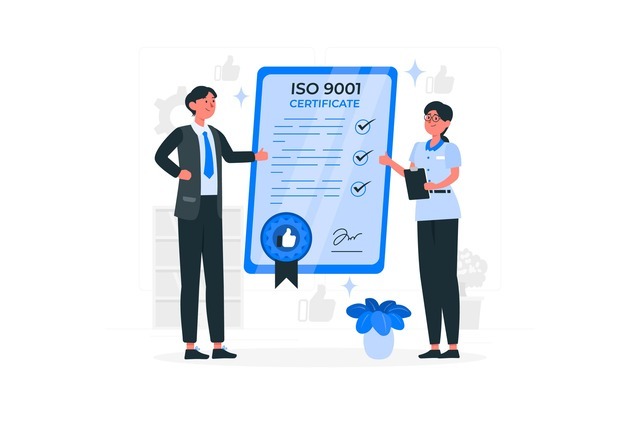
Do you want to obtain ISO certification for your business to advance standardization but don’t know where to start? Then this blog has every detail you need about the ISO Certification process in India.
ISO (International Organization for Standardization) is an independent international organization that develops International Standards such as ISO 9001 and ISO 14001, but it is not involved in ISO certification and does not issue ISO certificates. The ISO certification process is carried out in India by external certification bodies.
Why do you need an ISO certificate?
- International credibility: ISO certification is critical in assisting the organization in establishing credibility in international business.
- Customer Satisfaction: ISO standards are intended to help organizations better serve their customers, thereby increasing customer satisfaction.
- Government Tenders: To bid on Government Tenders, ISO Certification is required.
- Business Efficiency: Obtaining ISO Certification improves the functional efficiency of organizations. The ISO Certification Agency can assist in the development of SOP (Standard Operating Procedures) and work instructions. ISO implementation in an organization improves resource management.
- Product Quality: Obtaining ISO Certification ensures that the product quality meets international standards, lowering the risk of product order rejections due to flawed products.
- Marketability: ISO certification boosts business credibility and directly aids in marketing.
Procedure for application for ISO certificate
The cost of ISO certification in India varies by organization. The ISO certification body will calculate the fee for ISO certification by taking into account the various parameters listed below:
- Organizational size
- Employees’ number
- Organizational Methods
- The risk level associated with the organization’s service scope
- The management system’s complexity
- The number of shifts worked
The ISO certification process times differ from one organization to the next. Following an assessment of an organization’s size, the ISO certification body will notify the details processing time for completion of ISO certification.
Documents Required in India for ISO Registration / ISO Certification
The following documents are required for ISO certification:
Copy of PAN Card Passport-sized Photograph Copy of Aadhaar Card/Voter ID Card
Two copies of the sales/purchase invoice
The prerequisite for obtaining ISO certification or ISO registration:
First and foremost, the entrepreneur must determine the type of ISO certification required for the business. There are several types of ISO certification available, including those listed below:
- ISO 9001:2008- Quality Management System
- OHSAS 18001 – Occupational Health & Safety Management System
- ISO 37001 – Anti-bribery management systems
- ISO 31000 – Risk Management
- ISO 27001 – Information Security Management System
- ISO 10002 – Compliant Management System
- ISO 14001:2015 – Environment Management System
- ISO 26000 – Social Responsibility
- ISO 28000 – Security Management
- ISO 22008 – Food Safety Management
- SA 8000 – Social Accountability
- EnMS EN 16001 ISO 50001 – Energy Management
- ISO/IEC 17025 – Testing and calibration laboratories
- ISO 13485 – Medical devices
- ISO 639 – Language codes
- ISO 4217 – Currency codes
- ISO 3166 – Country codes
- ISO 8601 – Date and time format
- ISO 20121 – Sustainable events
- ISO/IEC 27001 – Information security management
- It should be known that ISO does not provide company certification. External certification bodies must perform this function. As a result, it is necessary to recognize a credible certification body. When choosing a certification body, the entrepreneur must consider the following factors.
- Examine various certification bodies
- Check to see if the certification body follows the CASCO standards.
- Examine the accreditation status of the certification body.
India’s ISO Certification Procedure
The ISO certification process is straightforward, with three steps:
1. Application Submission
It is the first step in the ISO certification process. You apply to an independent body that provides ISO registration and submit it.
2. Examination
Following the submission of the application, a single auditor reviews the Company’s quality management system (QMS).
3. Validation
The auditor writes a report after reviewing the QMS. If the report is positive, ISO registration in India is granted.
ISO certification is optional for business owners and organizations looking to improve their operations in accordance with the international standard. It is important to understand that ISO registration is not required. It is not a permit that allows you to conduct business.

